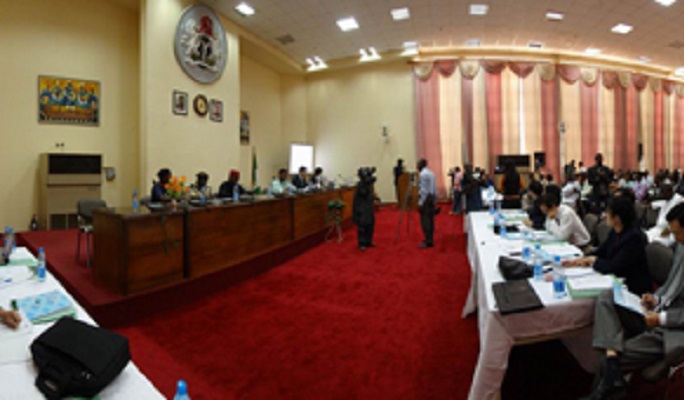For almost a decade and half, and if not more, Nigeria’s foreign policy has evolved almost to the point that the acclaimed “Africa as the centre-piece of Nigeria’s foreign policy” has become a non-recognizable relic of the foreign policy museum. In the years following Nigeria’s glorious contributions to the anti-colonial and anti-imperialist struggles on the continent, there hasn’t been any conscious attempt at reinvigorating her foreign policy to meet contemporary realities, globalization, high modernity and the plurality of global politics- that is if it is accepted that China, Russia and the European Union have introduced, widened and pluralized international hegemony, politics and trade.
Beyond the poor attempt by General Babaginda to engineer economic diplomacy as a foreign policy response to the domestic debt crisis, economic diplomacy somewhat emerged as a flagship policy that suited the Bretton Woods institutions that Babaginda’s regime was in cahoots, not only in the analysis of the Nigerian economic condition but also in their prescriptive remedying of the condition. Nigeria was thus caught between the Rock wrapped in Babaginda’s economic diplomacy and the Hard Place of the IMF-inspired Structural Adjustment Programme. An option President Obasanjo later pursued with a certain gusto that was ill-defined and purposeless; an Ajala-like way of seeing and knowing the world and pleading debt forgiveness. This too must be noted: though attempt was also made by President Obasanjo to center democracy, human rights, good governance, transparency and the liberalization of the domestic economy as aspects of Nigeria’s foreign policy, no lasting foreign policy framework emerged from this attempt, due largely to incoherence and poor articulation of the policy. The greatest damage inflicted on the “new attempt” was done by the President Obasanjo himself. Under his watch, democracy was rolled back, corruption climbed to its zenith and the fundamental rights of citizens were routinely abused.
It isn’t entirely correct to argue that it was General Babaginda that first introduced economic diplomacy. Far from it. Our argument, here, is that though General Babaginda showed vigor and “purpose” in the pursuit of his regime’s economy diplomacy, economic diplomacy as a foreign policy tool in shaping the power of the Nigerian state was also present during the regimes before his own. At least, the political component of economy diplomacy was in full throttle during the brief rulership of General Muhammed when the interests and the commitments of the Nigerian state to decolonization converged in the foreign policy that highlighted the popular aspirations of Nigerians and the stated foreign policy objectives of that era. While the stated political interests and commitments created vast acre of global respect and prestige, the acre wasn’t translated into any discernible economic influence within the continent. But, why was it so? Why is Nigeria increasingly losing her global respect and prestige?
In his 2015 book, ‘Economic Diplomacy and Nigeria’s Foreign Policy’, Musa Babayo provides a brilliant and seminal inquiry into Nigeria’s economic diplomacy that will invariably shape our understanding of ” economic diplomacy as policy instrument to promote economic growth through non-oil exports and attract foreign investment into the Nigerian economy”. While the inquiry looks at the Babaginda era, Babayo casts his scholarly eyes on the long road of the market that our country has travelled since the introduction of the Structural Adjustment Programme (SAP). Babayo doesn’t directly provide answers to the questions I posed in the foregoing paragraph, but he implicitly answers the “whys” in the chapter on “adjustment and growth crisis in Africa” and argues further that growth can only be achieved through domestic economic reforms. Here, for me, is the kernel of his brilliant scholarship and it is solely on the basis of connecting true domestic economic reforms to foreign policy objectives can economic diplomacy be centered, rightly pursued and correctly framed, no matter the pious proclamations most governments make in their foreign policy objectives. Pantelis Sklias correctly captures this point when he notes that “foreign policy is determined in large part by the stability and cohesion of domestic policy, particularly in fields which generate increased power for the state”.
How is economic diplomacy possible in a chaotic democracy? Hear Babayo: ” an enabling environment is critical to economic growth…among the reasons for the relative failure of Nigeria’s economic diplomacy in achieving its economic goals was the uncertain internal political situation in Nigeria”. The fate of economic diplomacy doesn’t change either in an unstable democracy. But, it is also possible to make small gains even in an unstable democracy as Babayo notes in the concluding part of his book, thus: ” in the last few years, the Nigerian domestic economy has been stabilized. The process of recovery has been quite impressive. With an annual average growth rate of over 6 percent and a projection of 7 percent in the next few years, Nigeria is one of the fastest growing economies in the world”.
Babayo’s ‘Economic Diplomacy and Nigeria’s Foreign Policy’ is an important contribution to the wider discourse on change. In the concluding paragraph of his book, Babayo argues that economic diplomacy is always a forgotten foreign policy tool when economic growth rates and prospects are brighter. Well, economic growth has taken the nosedive since this brilliant seminal was published early in the year and it is only imperative that this new government of President Muhammadu Buhari takes a look at his framework in order to grasp the timeworn truth that economic outcomes depend largely on how well market forces are understood. And it is by so doing that economic diplomacy can be deepened in a time of economic crisis. Happily, we have just woken up to the new economic crisis.







